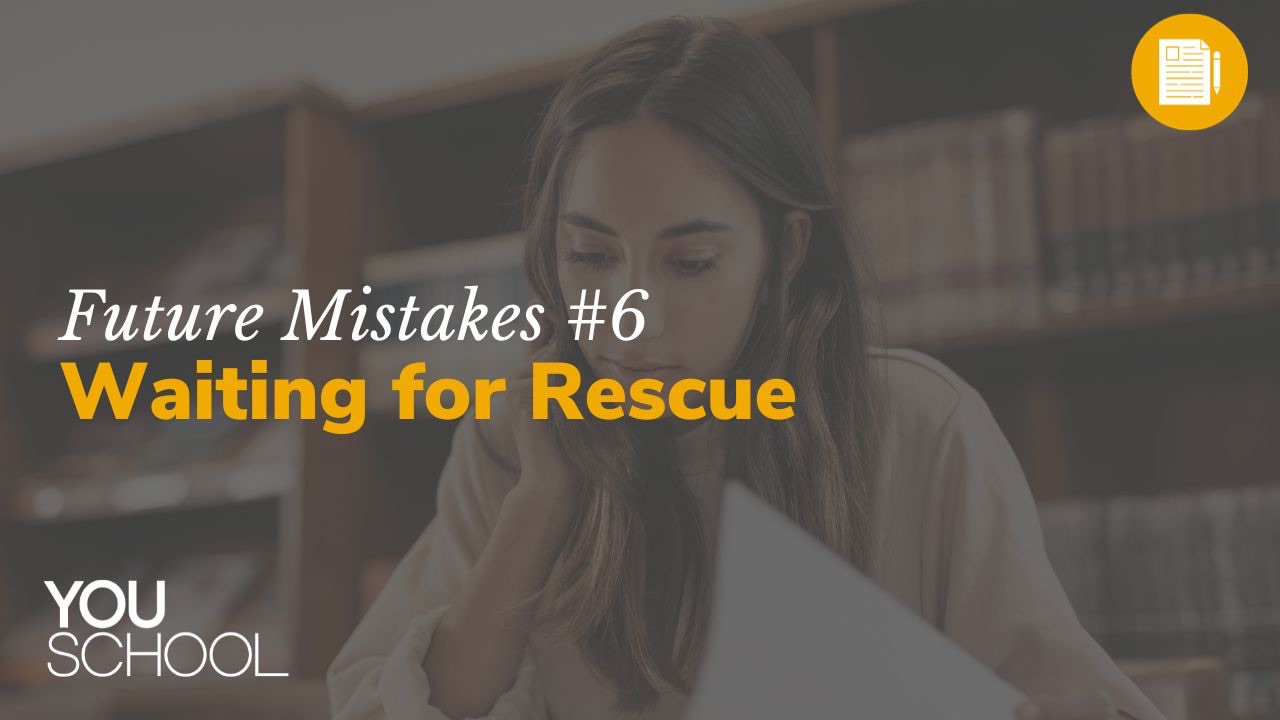Future Mistakes #6: Waiting for Rescue

I’ve always wondered what it must’ve been like to be Lebron James as a teenager. I knew who he was when he was 16 years old- the chosen one. There was very little doubt that he would turn out to be who he turned out to be. He didn’t really need to worry about success; he just had to wait and let it all unfold.
A lot of emerging adults have the same mentality. Unfortunately, they don’t share in his generational talent!
A good friend of mine, Dr. Evie Trevino, is a quantitative psychologist and leading researcher out of the University of Oklahoma studying the science of hope. You read that right: hope is a science and is the best predictor of well-being compared to twenty-two other measurable personality traits. It’s not only measurable; it’s malleable. You can increase someone’s hope.
She mentioned something recently that stuck out to me. She said that in a recent study of teenagers and emerging adults, this generation was filled with optimism but low in hope. Hope, by definition, is the belief that the future will be better than the present, and you play a key role in making it so. In other words, optimism is a general sense that things will work out, but hope contains an element of personal responsibility. Your life is a story, and not only are you playing a central role, but you’re also a writer and a producer.
Most young people are waiting to figure out what path to take in life. With lots of encouragement from the adults in their lives, they keep their heads down and focus on what’s right in front of them: school, sports, friends, and their mental health. But, unfortunately, they typically get a wake-up call just a few short years later to answer questions they aren’t prepared to answer. Questions like:
- So what do you want to do next, now that school is over?
- What are your plans? Where are you going?
- What's most important to you now that you don't need to worry about doing well in school?
- What kind of career do you want to have?
I have to admit I did the same thing. I put my head down as a teenager, told everyone I was going to go into finance or accounting, and avoided all the stress and anxiety that came from actually trying to figure myself out. I woke up at the beginning of my last year in college with a panic: I had to figure out what I wanted to do next, and I had absolutely no clue! Not only that, but no one could help me either.
It’s a mistake to wait for rescue. No one’s coming. Your life is up to you; only you can figure it out.
Now that I’m stepping down from my soapbox, I should consider some practical ideas. What does taking initiative and personal responsibility to find your future path look like?
- Get curious: the central ingredient to self-discovery is curiosity. Get curious about everything—your reactions to a discussion, your motivation level to a particular school assignment, your feelings on the way to each class, etc.
- Ask questions: do what I never did while I was in school—ask questions. Ask your teachers or professors questions about the path they took. Ask people you admire about their parenting, marriage, or career philosophy. Get comfortable asking questions.
- Take the initiative: start engaging in conversations with people about career and life topics. Invite people you look up to for a meal, and talk with them about the choices they made along the way. Ask them for advice and feedback about what they see in you and what they would do if they were in your shoes.
Of course, you have to be patient in your journey to self-discovery. It’s iterative and takes time. But it’s a mistake to kick the can too far down the road. Yes, you need to focus on your current responsibilities. But today is ripe with opportunities to learn, connect the dots, and make moves toward the best path for your life.
P.S. What if there was a way to get the best resources to impact the kids in your life—delivered to you at the right time?
Check out our memberships for parents and educators.
Get the Critical Foundations Book
